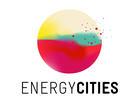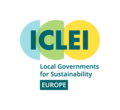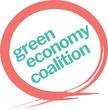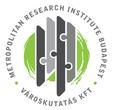SHARED GREEN DEAL brings together 22 leading organisations from across the EU, including universities, research institutions, network organisations and businesses. If you want to be put in touch with specific partners, please write info [at] sharedgreendeal [dot] eu.
Anglia Ruskin University
Anglia Ruskin University (ARU) was the first UK university to sign The Rio+20 Declaration of Higher Education Institutions. It has undertaken a corporate commitment to sustainability in its research, teaching and operations, and in 2018 signed the divestment pledge. The Global Sustainability Institute (GSI) was established by Anglia Ruskin University in 2011, and, over the past 10 years, it has grown to become a high-profile and dynamic research group of 45+ members. The GSI has a global reputation for delivering research impact and high-quality interdisciplinary publications across a broad range of sustainability issues. We have also led and supported several high-profile EU projects including SHAPE ENERGY, Energy-SHIFTS, MEDEAS, RRING, Energy in Water, amongst others, and also been part of major centres such as the ESRC’s Centre for Understanding Sustainable Prosperity and EPSRC’s EnergyREV. The GSI has a particular interest in research that has the potential for real-world impact, and thus has a wide portfolio of applied projects that focus on working with e.g. European Commission, UK Government, local authorities, charities and NGOs, business and industry, etc. The GSI is responsible for overall management and coordination of SHARED GREEN DEAL (led by Dr Chris Foulds and Dr Rosie Robison).
DRIFT for Transition
DRIFT for Transition are 30+ experts working on fundamental change towards just and sustainable futures. As a social enterprise, we support people, cities, companies and sectors striving for such change. We do so by developing and sharing transitions know-how and how-to through research, consultancy, education and activism!
Energy Cities
Energy Cities empowers cities and citizens to shape and transition to futureproof cities. We showcase concrete alternatives deployed by cities, we advocate to change politic and economic governance at all levels and we foster a wide cultural change leading to a futureproofed society. Energy Cities’ community is composed by local leaders of thousands of cities in 30 European countries.
ICS-ULisboa
The Institute of Social Sciences of the University of Lisbon (ICS) is an multidisciplinary institution dedicated to research, post-graduate studies and societal outreach in the Social Sciences. Our 123 full-time PhD researchers are responsible for making ICS a leading research institution in Portugal and in the global academic world. As an internationally recognized institution of excellence, ICS has had the status of FCT Associate Laboratory since 2002. Key signs of international projection and recognition are the projects obtained via competitive funding, the award of ERC grants, the increase in indexed publications and the strengthening of research collaborations and infrastructures. The main academic fields at ICS are Social Anthropology, Political Science, Human Geography, History, Social Psychology, Economics and Sociology. Research activities are organized into 7 research groups: Environment, territory and society; Socio-political attitudes and behaviours; Identities, cultures, vulnerabilities; Empires, colonialism and post-colonial societies; Life course, Inequality and Solidarity; Power, Society and Globalization; Regimes and Political Institutions. This is a flexible framework that promotes interdisciplinary teamwork, as well as individual initiative and intellectual freedom. Such a wide-ranging combination makes ICS a challenging and inspiring place for young scientists, students, visiting fellows and dedicated staff members, working in a collaborative and friendly environment.
ICLEI Europe
ICLEI - Local Governments for Sustainability is a global network of more than 2500 local and regional governments committed to sustainable urban development. Active in 125+ countries, we influence sustainability policy and drive local action for low emission, nature-based, equitable, resilient and circular development. Our Members and team of experts work together through peer exchange, partnerships and capacity building to create systemic change for urban sustainability. ICLEI Europe provides its members in Europe, the Middle East and West Asia with a voice on the European and international stage, a platform to connect with peers and tools to drive positive environmental, economic and social change. ICLEI Europe works closely with an extended network of local and regional governments and partners on a broad range of topics.
ALDA - European Association for Local Democracy
ALDA – the European Association for Local Democracy – is a global alliance of local and regional authorities and civil society actors working together with a participative approach for resilient, inclusive, and sustainable communities. To promote good governance and citizen participation at the local level in the whole Europe and beyond, ALDA leads a wide range of actions supporting local, national, and international stakeholders in achieving their goals in the fields of European integration, decentralization, human rights, social inclusion, sustainable development, civic initiatives and much more. It works with a multistakeholder approach looking at a broad spectrum of the potential resources in the local communities. ALDA represents a wide network of citizens and local authorities fully committed and engaged to support local democracy and the empowerment of local communities through citizens participation, in Europe and beyond. Since 2020, ALDA has been bringing its experience in local democracy beyond the European borders and the neighborhood, reaching out to other regions of the world in need of assistance and support in our field of expertise. In its 20 years of activities, with its members and partners ALDA has had an impact on over 25 million citizens of the Enlarged Europe, and further.
See ALDA - European Association for Local Democracy's website
Institute for European Environmental Policy (IEEP)
The Institute for European Environmental Policy (IEEP) is a sustainability think tank headquartered in Brussels, Belgium. IEEP works with stakeholders across the EU institutions, international bodies, academia, civil society and the private sector to tackle social and environmental challenges in Europe and around the world.
See Institute for European Environmental Policy (IEEP)'s website
Fraunhofer ISI
The Fraunhofer Institute for Systems and Innovation Research ISI conducts applied research in seven Competence Centers with a total of 28 Business Units and sees itself as an independent institute for society, politics and industry. Our expertise in the area of innovation research is based on the synergy of the technical, economic and social science knowledge of our staff members. In our work we apply not only a broad spectrum of advanced scientific theories, models, methods and social-science measurement instruments, but continually develop them further, utilizing the empirical findings from the research projects conducted. On behalf of our customers we investigate the scientific, economic, ecological, social, organizational, legal and political framework conditions for generating innovations and their implications. We use scientifically based analysis, evaluation and forecasting methods. Our assessments of the potentials and limitations of technical, organizational or institutional innovations help decision-makers from industry, academia and politics in making strategic decisions and thus assist them in creating a favorable environment for innovations. Thus Fraunhofer ISI one of the leading innovation research institutes in Europe.
École des Ponts Business School EPBS-CERC
Ecole des Ponts Business School (EPBS) is an internationally renowned business school located in Paris. The eminent school’s approach is a derivative of the long history of academic excellence of its alma mater École Nationale des Ponts et Chaussées (aka Ecole des Ponts ParisTech). The Circular Economy Research Center (CERC) has been established in the EPBS to lead and support novel research initiatives and to design new multidisciplinary business models which can support the transformation process from a linear to a circular economy. The research interests are founded in groundbreaking thinking on innovation and entrepreneurship, leadership and talent management, circular economy and sustainable development, digital transformation, and change.
ZRC SAZU
The Research Centre of the Slovenian Academy of Sciences and Arts (ZRC SAZU) was established as an independent public research institution in 1981 and has since become the leading research and educational center in Slovenia, mainly in the humanities and social sciences, and one of the most prominent academic institutions in central and southeastern Europe. More than three hundred researchers work within eighteen interconnected institutes that create a dynamic transdisciplinary research network. The research spans from linguistics to philosophy and archaeology to biology. Their findings are of tremendous importance for a better understanding of cultural, social, and natural phenomena in Slovenia and the world. Apart from publishing their results in academic publications, research groups also engage in data collection, documentation, and presentation to audiences beyond the academic sphere. Over the last four decades, ZRC SAZU has also become one of the driving forces of citizen engagement in science. ZRC SAZU has its own publishing house, bookstore, and several laboratories; it houses the Geographical Museum, and boasts numerous collections. Among its rich publishing activity, five academic journals are listed in Thomson Reuters.

University of Galway
The University of Galway is the largest and oldest university based in the west of Ireland, employing in excess of 2,000 staff with a 17,000 strong student population. The University of Galway is a research-led University and the 2020 QS World University Rankings placed the University at number 259 in the world. Its research and teaching infrastructure is well established, of world calibre and strongly supported. In November 2017 the University launched its Sustainability Strategy 2017-2020. It sets out a strategy, incorporating 20 key indicators, for establishing the University as a top-class green, smart and healthy campus, a campus with maintains a green and healthy environment, promotes resource efficiency and instils in graduates and staff the importance of tackling societal challenges. Ranked in the top 1% of Universities globally, The University of Galway has an academic community of world leading researchers, working at the forefront of their fields and has a commitment to supporting and encouraging postgraduates in their taught and research programmes.
TU Wien, Institute of Spatial Planning, Research Unit Sociology
The Research Unit Sociology is the social science centre of the Faculty of Architecture and Spatial Planning at Technische Universität Wien (TUW). The Research Unit engages in research, consultancy and teaching on three main areas: a) social and technological change and innovation, b) social inequalities, migration, poverty and discrimination, and c) participation, planning and democracy. Action research is a leading principle for the projects at the Research Unit Sociology as the role of sciences cannot be restricted to analysis only. On the basis of profound analysis the Research Unit Sociology is impacting urban developing processes, actively including other scientific disciplines (multidisciplinary), practitioners and other relevant stakeholders (transdisciplinary) in its research and consultancy activities. In these activities the Research Unit Sociology has a broad expertise in all kinds of communication, activation and participation processes with citizens as well as with public administration, politicians and investors and other stakeholders, amongst others in the field of sustainable mobility and energy planning, and resource- and energy- efficient city and neighbourhood development. The Research Unit Sociology has long experience in leading and contributing to international, nation and local research projects. The Research Unit brings into this consortium know-how on behavioural analysis of mobility demands of different social groups (e.g. socio-demographic, socio-economic, gender, socio-cultural differences and social inequalities in mobility and energy systems), designing and implementing local interventions and participation/co-creation processes in neighbourhoods, process evaluation and project management.
See TU Wien, Institute of Spatial Planning, Research Unit Sociology's website
Bankwatch
We’re the largest network of grassroots, environmental and human rights groups in central and eastern Europe. We monitor public finance institutions that are responsible for hundreds of billions of investments across the globe. The banks and funds we watch are often obscure but always important entities that function outside public scrutiny. Together with local communities and other NGOs we work to expose their influence and provide a counterbalance to their unchecked power.
WECF Germany
Women Engage for Common Future (WECF) is a non-profit international network dedicated to a gender just and healthy planet for all. As an ecofeminist organisation, WECF has a comprehensive approach to sustainable development, climate action, and a toxic free and healthy environment and puts diversity and gender equality at the focus. The Energy Team of WECF Germany strives for the implementation of affordable and efficient renewable energy solutions and conceives decentralized and citizen's energy supply as a key factor of success. WECF supports local community groups to create sustainable energy funds and cooperatives.
Green Economy Coalition (GEC)
The world's largest movement for fair and green economies, the GEC works with our partners around the world to give citizens a voice, hold governments to account, and drive real economic change.
Acento Comunicación
Acento Comunicación (Granada, Spain) specialises in the creation of digital content and dissemination of results for companies and institutions. The team is made up of professionals and experts in the following areas: Journalism, Marketing Online and Social Media, Graphic Design, Computer Programming, Video Production and Translation. Acento Comunicación develops projects for public institutions and private companies from various sectors: food, hospitality, tourism, energy, computing, etc. We keep strong ties with several research groups from the Universities of Granada, Salamanca and Málaga. ACC is partner of several H2020 projects and cooperates in communication tasks with other EU organizations. One of our core activities is the press office of Alhambra World Heritage Site in Granada and we organize annual cultural festivals in several spanish cities.
Aalborg University Copenhagen
Aalborg University (AAU) is a university with more than 15,000 students. We offer education and research within the fields of natural sciences, social sciences, humanities, technical and health sciences. AAU BUILD research deals with all subjects within constructions and buildings and develops research-based knowledge to improve buildings and the built environment. BUILD - Department of the Built environment has its starting point in engineering science, but also contains important and comprehensive elements from the social sciences and humanities. This gives us the opportunity to research, advise and educate holistically in the complex issues of the urban, residential and construction area. We want to provide knowledge so that we can get answers to some of society's biggest challenges, such as the climate crisis, population development, resource scarcity and urbanization. The researchers in the Shared Green Deal are part of the Sustainable Cities and Everyday Practices research group. The group works empirically and theoretically with household consumption and everyday practice as well as with public, private and civilian actors' initiatives in the development of cities and residential areas.
MIO-ECSDE
MIO-ECSDE is a non-profit Federation of 133 Mediterranean NGOs working in the fields of Environment and Sustainable Development in 28 countries of the Euro-Mediterranean area. MIO-ECSDE's mission is to protect the Natural Environment and Cultural Heritage and promote Sustainable Development in a peaceful Mediterranean. MIO-ECSDE acts as a technical and political platform for the intervention of NGOs in the Mediterranean scene on resources and waste, nature, biodiversity, cultural diversity, climate change, health and environment as well as on horizontal and cross-cutting issues. In co-operation with governments, international organisations, other socio-economic partners and networks, MIO-ECSDE plays an active role furthering synergies and strengthening public participation in the Mediterranean Region and its countries.
Circular Economy Alliance (CEA)
The Circular Economy Alliance (CEA) is a dedicated, committed and knowledge-driven organization with an exclusive focus on supporting the shift to Circular Economy by offering continuous knowledge, education, and awareness in a systematic and repetitive manner. CEA lies on solid data-driven foundations, welcoming learners who are determined to uplift their capacity and be drivers of change. CEA envisions a world where circular economy is more than a subject for scientific research but employed by all businesses to achieve green innovation through renewable resource management. CEA aims to provide professionals and organizations with comprehensive, accredited, reliable, actionable skills and knowledge to become agents of change by implementing circular economy practices.
Metropolitan Research Institute
METROPOLITAN RESEARCH INSTITUTE (MRI) is a private research company established in 1989. Its staff consists of ten researchers, with Master or PhD degrees in economics, sociology, or history. MRI’s work is centred around urban development and socially sensitive urban regeneration, housing policy with focus on social and affordable housing, local governance, and comparative research of European cities and welfare states. MRI undertakes research and consultancy, organises international and local conferences and workshops in these areas with and for local governments, ministries and other governmental bodies, universities and research institutions, EU institutions, and international organisations. MRI participates in European research projects (5-7th Framework and Horizon 2020), and coordinates some of them, like OpenHeritage (2018-2022), UPLIFT (2020-2023). MRI and its lead researchers are members of different international organisations like URBACT, European Urban Research Network (EURA), and European Network of Housing Researchers (ENHR). Its consultants acted as Urban Innovative Action evaluators. They act as editors or board members of various peer reviewed journals in relevant topics.
CUAS
Founded in 1995 Carinthia University of Applied Sciences (CUAS), currently offers around 40 degree programmes in the fields of civil engineering & architecture, engineering & IT, health and social sciences and business. CUAS is known for its high-tech orientation. Newest technology as well as many collaborations with industrial partners shape the image of the CUAS. According to the Federal Act on University of Applied Sciences Studies Act (FHStG) the Austrian Universities of Applied Sciences are obliged to conduct teaching, study and application-related R&D. CUAS currently has around 2500 students, annual turnover in the area of further education programs of € 580,000 and a research volume of € 4.5 million (2020). A staff of 300 employees, including 110 university professors, are available to carry out these tasks. Since 2020, a UNESCO Chair on Sustainable Management of Conservation Areas has been established at CUAS, with a strong focus on developing educational programmes and research projects for nature conservation in the 21st century.
SFYN Global
Slow Food Youth Network unites groups of young food enthusiasts, chefs, activists, students and food producers who participate in public debate about current issues and introduce young people to the world of gastronomy. Through their unique events and activities, SFYN groups raise awareness about important food issues such as how to feed the world, food waste and sustainable food production, stimulating positive action.


CONTACT
For further details please contact co-leads Professor Chris Foulds (chris.foulds@aru.ac.uk) and Professor Rosie Robison (rosie.robison@aru.ac.uk).

This project has received funding from the European Union’s Horizon 2020 research and innovation program under grant agreement No 101036640. The sole responsibility for the content of this website lies with the SHARED GREEN DEAL HAS project and does not necessarily reflect the opinion of the European Union.














